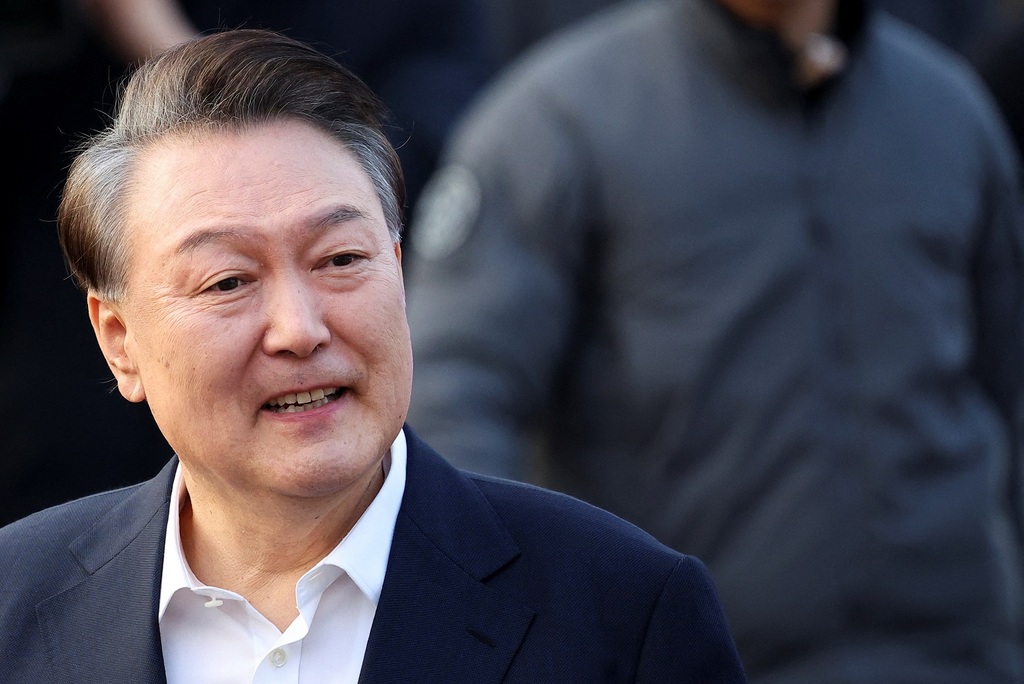Lee Jae-myung's Presidential Bid: Global Concerns and Implications
Lee Jae-myung's recent presidential bid has sparked considerable international interest, raising numerous concerns and questions about South Korea's future trajectory on the global stage. This article delves into the key issues driving global anxieties surrounding his candidacy and explores the potential implications for international relations.
Key Global Concerns Regarding Lee Jae-myung's Presidency
Lee Jae-myung's political stances have prompted concerns among some international observers. These concerns are multifaceted and touch upon several critical areas:
1. North Korea Policy: A Delicate Balancing Act
Perhaps the most significant concern revolves around Lee Jae-myung's approach to North Korea. While he advocates for dialogue and engagement, his past statements suggest a potential shift away from the more cautious strategies employed by previous administrations. This uncertainty fuels anxieties about the stability of the Korean Peninsula and the potential for renewed escalations. The international community closely watches his proposed strategies to ensure regional peace and prevent further nuclear proliferation.
- Engagement vs. Containment: The delicate balance between engaging with North Korea and containing its aggressive behavior is a major point of contention.
- Sanctions and Diplomacy: Lee's stance on international sanctions against North Korea remains a key area of global scrutiny.
- Security Alliances: How his presidency would impact alliances with the US and other key regional players is another significant concern.
2. Economic Policy and Global Trade
Lee Jae-myung's economic policies, particularly regarding trade and investment, have also garnered attention. His focus on economic justice and income redistribution, while domestically popular, might lead to uncertainties for foreign investors. Concerns exist about potential impacts on South Korea's strong export-oriented economy and its role in global supply chains.
- Foreign Investment: Potential changes to foreign investment regulations are closely monitored by global businesses.
- Trade Agreements: The future of existing free trade agreements and the pursuit of new ones are key areas of interest.
- Economic Nationalism: The extent to which Lee might prioritize domestic industries over international cooperation is a significant question.
3. Human Rights and Democratic Values
Another area of global concern surrounds Lee Jae-myung's record on human rights and democratic principles. International organizations and human rights activists are carefully observing his commitment to upholding democratic norms and safeguarding fundamental freedoms. Any perceived backsliding on these issues could damage South Korea's international reputation.
- Freedom of Speech: Concerns exist about the potential for restrictions on freedom of expression under a Lee Jae-myung presidency.
- Judicial Independence: Maintaining the independence of the judiciary is crucial for upholding democratic values.
- Transparency and Accountability: Ensuring transparency and accountability in government is essential for building trust with the international community.
Potential Implications for Global Relations
The outcome of Lee Jae-myung's presidential bid holds significant implications for South Korea's relationships with key global partners, including:
- The United States: Maintaining a strong alliance with the US is crucial for South Korea's security and economic prosperity. Any shifts in this relationship will have far-reaching consequences.
- China: Navigating the complex relationship with China, balancing security concerns with economic ties, will be a major challenge for any South Korean president.
- Japan: Improving relations with Japan is critical for regional stability and economic cooperation. Lee Jae-myung's approach to this relationship will be closely watched.
Conclusion: A Time for Vigilance
Lee Jae-myung's presidential bid presents a moment of considerable uncertainty for the global community. While his election would not automatically lead to catastrophic outcomes, the potential implications for regional security, global trade, and human rights warrant careful observation and engagement. The international community must actively monitor developments in South Korea and engage in constructive dialogue to ensure a stable and prosperous future for the Korean Peninsula and the broader global landscape. Further analysis and informed discussion are crucial to navigate the uncertainties ahead.
Further Reading: [Link to relevant academic article or news source on South Korean politics] [Link to another relevant article on this website]
Call to Action: Share your thoughts on the implications of Lee Jae-myung's presidential bid in the comments below. What are your biggest concerns, and what do you see as potential positive outcomes?
